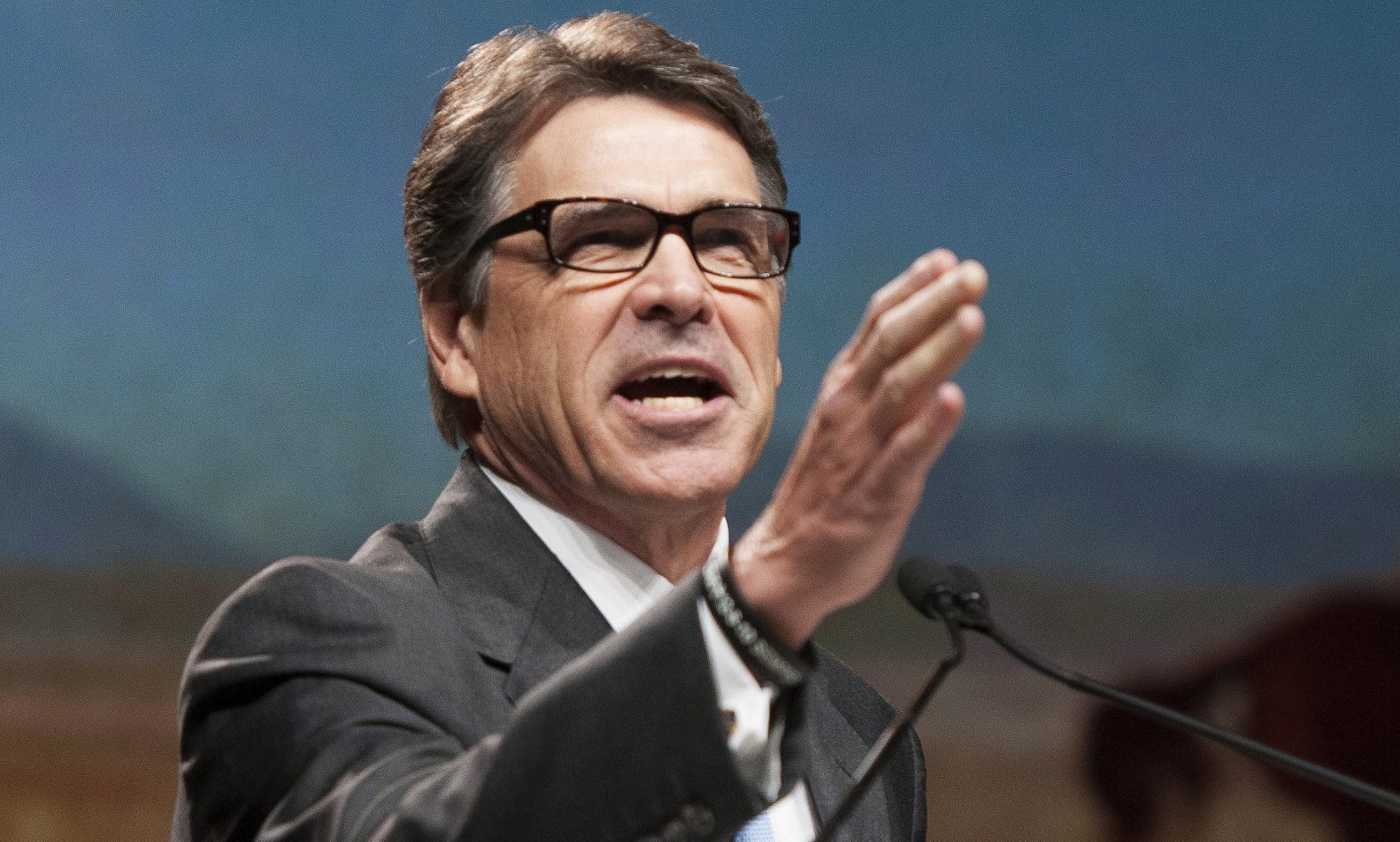The past couple weeks haven’t been kind to Rick Perry.
Since announcing his presidential bid on June 4th, the former Texas governor has been dogged by low poll numbers. A recent estimate from RealClearPolitics has him trailing most Republican contenders in Iowa, Donald Trump included. Memories of his gaffe-ridden 2012 campaign are still raw, and Perry has struggled to distance himself from his reputation as the “oops” candidate who could only remember two of the three federal agencies he wanted to cut. In an attempt to refurbish his intellectual image, he recently started wearing thick-framed glasses, a somewhat crass style choice that has inspired mockery from both the right and left. Throw in two indictments (for abuse of power and coercion, no less) that refuse to go away, and you have a politician whose inescapable legacy is doing him few favors.
This is a shame. If we overlook Perry’s performance in 2012 and its fallout, his merits as a candidate immediately become clear. His backstory rings with a perfect blend of conservative folksiness and red-blooded American machismo: he grew up on a small Texas farm, became an Eagle Scout, and went from Texas A&M to the Air Force, making him one of the few veterans in the Republican field. He has the endorsement of Tara Kyle, widow of “American Sniper” Chris Kyle. He is a charismatic retail politician with a knack for riling up the far-right voters who wield undue influence during primary season. With his support for sending troops back to Iraq, he is taking a position of increasing popularity; a recent Gallup Poll found that the percentage of Americans who view the Iraq War as a mistake has fallen by 6 points from last year, a likely consequence of ISIS’s rise in the region.
But Perry’s biggest asset, and his potential path to salvation in the contentious race ahead, may lie in his record as governor. He held that office from 2000 to 2015, longer than any other person in Texas history. During his tenure, 30% of all new American jobs were created in Texas, employment within the state jumped by 22.5% (compared to a national increase of 6%), and the state’s high school graduation rates for African Americans and Hispanics rose to the highest in the country. Never mind that certain economists have questioned how much the governor’s policies were actually responsible for these gains, which have come to be known collectively as the “Texas Miracle.” Politicians tend to be good at deliberately confusing correlation with causation, and Perry is no exception. The day after his announcement, he went on CNBC to talk up his successes, selling his low-tax and low-regulation model as nationally applicable.
He should keep this up. To live down 2012, Perry will need to appear more professional and serious, and emphasizing his glowing resume is a great way to do so. In his kickoff speech, the governor proclaimed that this would be a “show me, don’t tell me election.” Hopefully he can show the voters that he deserves another chance.

